Mantic Compost
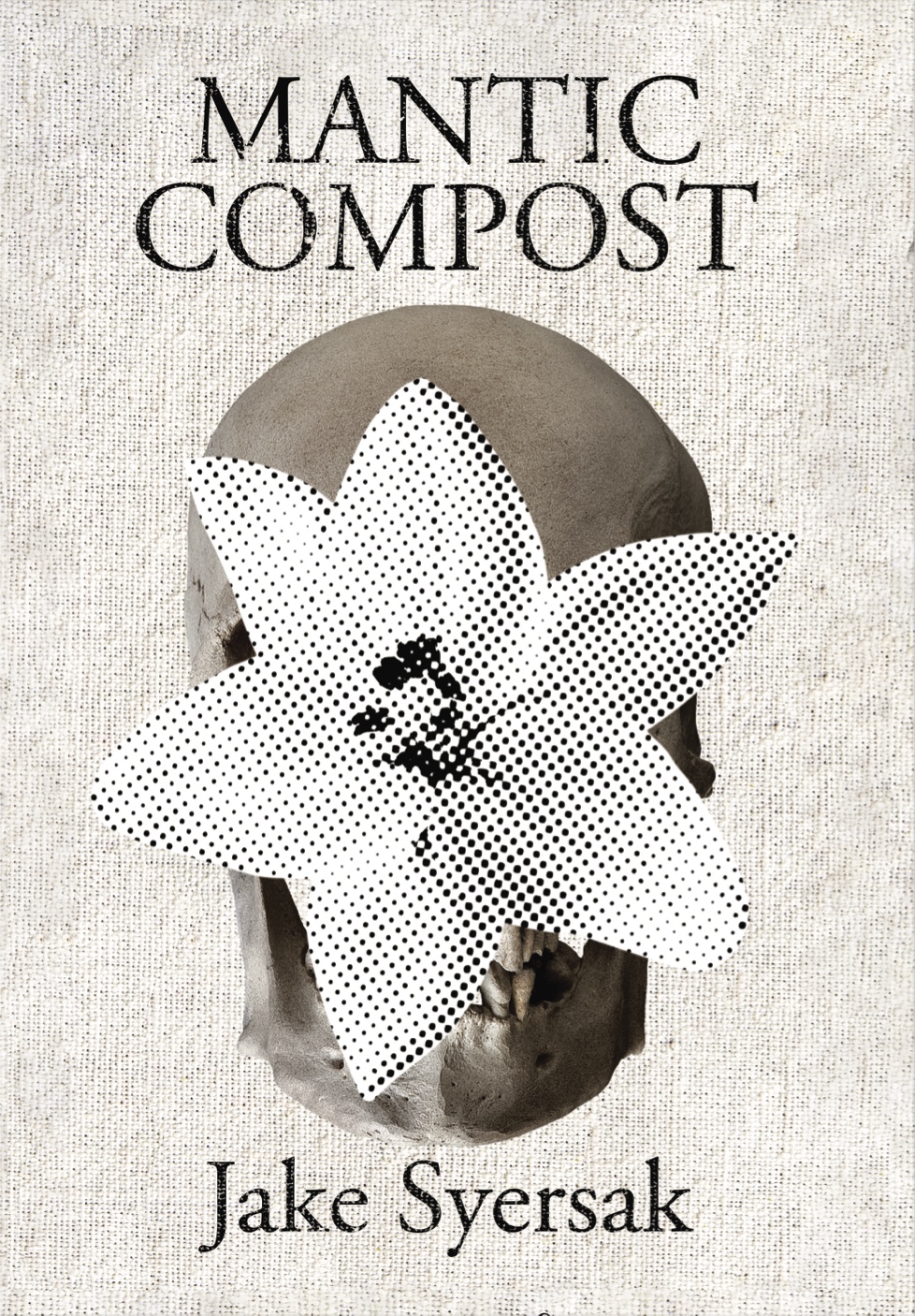
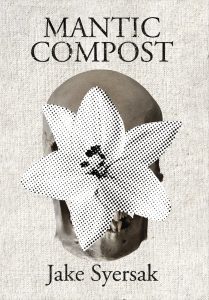 By Jake Syersak
By Jake Syersak
$16.00 | January 2022
ORDER NOW:
US DOMESTIC SHIPPING ONLY
EMAIL: EDITOR@TREMBLINGPILLOWPRESS.COM for INTERNATIONAL SHIPPING COSTS
Putting the human back in its humble if pliable place within our radically intra-dynamic ecology, Mantic Compost reveals the basic element of universal composition to be neither the atom nor anatomy, but relation, “whatever et cetera sows.” As Jake Syersak approaches the world—irrevocably from inside—all things are ambidextrous, an “algebra of one another,” from a moon made of kudzu to the self as a river traversing a cricket’s skull. Wandering among gangly, sinewy lyrics and over expansive, plosive, philosophical prose, the consciousness of these five interlaced series understands that his porous, provisional subjectivity, “my skin all x-ray-y,” is engendered by the astro-bio-othernesses coursing through his veins. As history and futurity impinge on the present, “linking day to day to day to,” Syersak sings our imperiled earth, from Marañon Province to Puget Sound, with astounding drunken wonder and flat, sobering fact.
-Andrew Zawacki, author of Unsun : f/11
Jake Syersak’s Mantic Compost tasks itself with composing a poetry adequate to our anxious time of pre-decomposition. Here the psyche is post-composure and the rhyme between semantic and mantic is just a declension fluffing the pillows for the no-longer-estranged bedfellows of planetary decline.
-Magdalena Zurawski, author of The Tiniest Muzzle Sings Songs of Freedom
About the Author
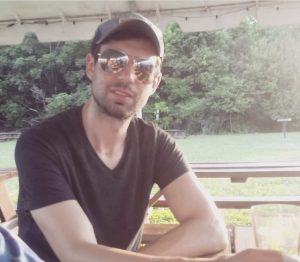
Jake Syersak is a poet, translator, and editor currently living in Seattle, WA. He is the author of the poetry collections Yield Architecture (Burnside Review Books, 2018) and Mantic Compost (Trembling Pillow Press, 2022), as well as several chapbooks. He received a BA in English Language and Literature from the University of Washington, an MFA in Creative Writing from the University of Arizona, and a PhD in English Literature and Creative Writing from the University of Georgia. His poetry and translations have appeared in such journals as Action, Asymptote, Black Warrior Review, Conjunctions, Colorado Review, Omniverse, and Volt, among others. A current editor of the micropress Radioactive Cloud, he ran the long-running poetry journal Cloud Rodeo, co-curated the Yumfactory Reading Series, and has contributed to the editorial teams at Sonora Review, Diagram, and Letter Machine Editions. He is also the recipient of a 2021 PEN/Heim Translation Fund Grant and is the author of several works in translation, including the hybrid novel Agadir (Diálogos Press, 2020) by Mohammed Khaïr-Eddine, co-translated with Pierre Joris.

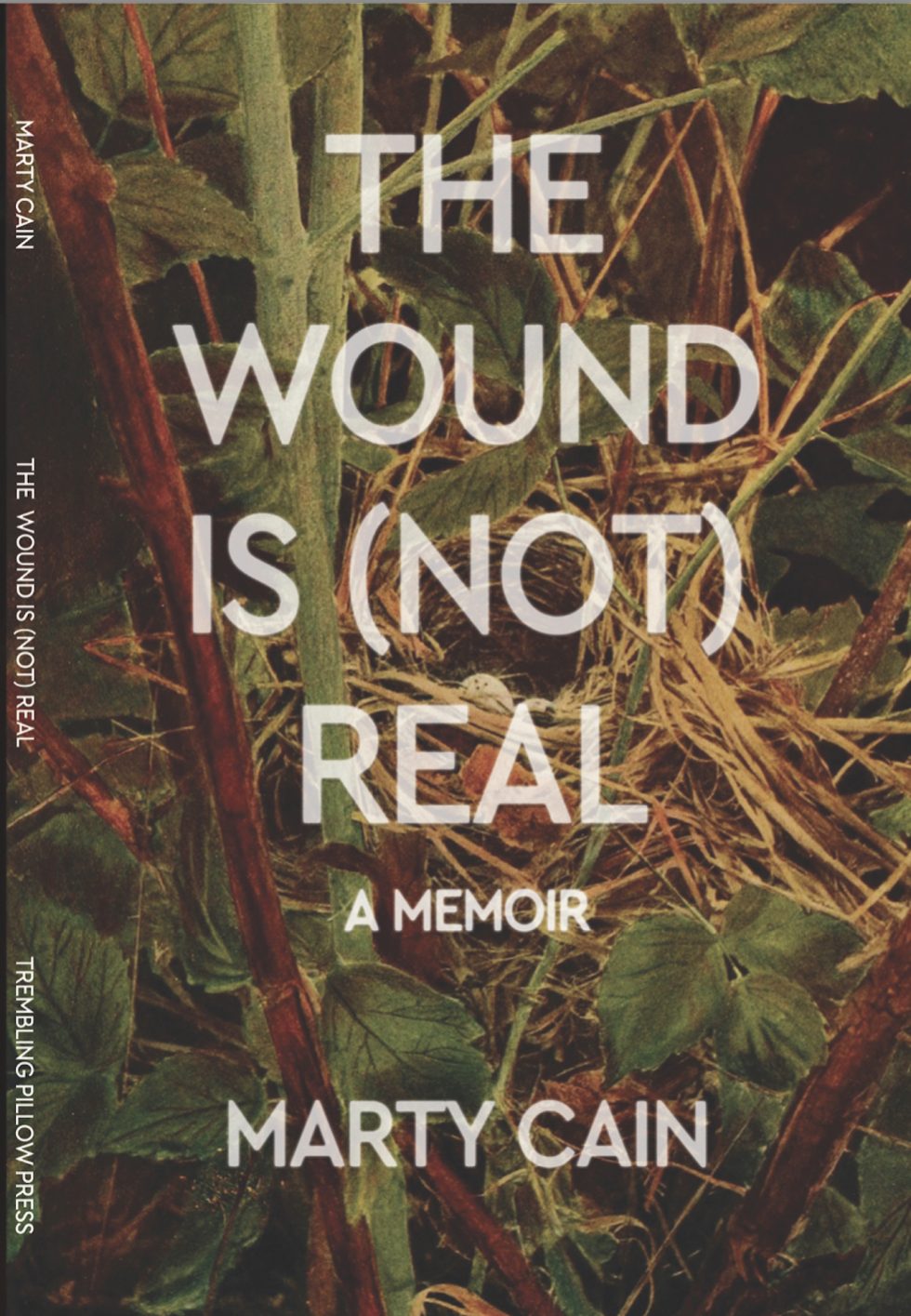
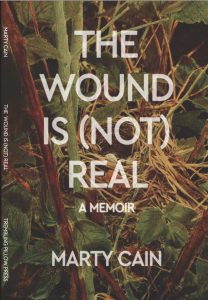
 Marty Cain was raised in Marlboro, Vermont. He is the author of Kids of the Black Hole (Trembling Pillow, 2017) and the chapbook Four Essays (Tammy, 2019). His poetry and hybrid works appear in Fence, Denver Quarterly, Poetry Daily, Sink Review, and Best American Experimental Writing 2020, among other publications. He holds an M.F.A from the University of Mississippi, and is currently a Ph.D candidate at Cornell University, where he’s writing a dissertation on rural poetry collectives. With Kina Viola, he co-edits Garden-Door Press in Ithaca, New York.
Marty Cain was raised in Marlboro, Vermont. He is the author of Kids of the Black Hole (Trembling Pillow, 2017) and the chapbook Four Essays (Tammy, 2019). His poetry and hybrid works appear in Fence, Denver Quarterly, Poetry Daily, Sink Review, and Best American Experimental Writing 2020, among other publications. He holds an M.F.A from the University of Mississippi, and is currently a Ph.D candidate at Cornell University, where he’s writing a dissertation on rural poetry collectives. With Kina Viola, he co-edits Garden-Door Press in Ithaca, New York.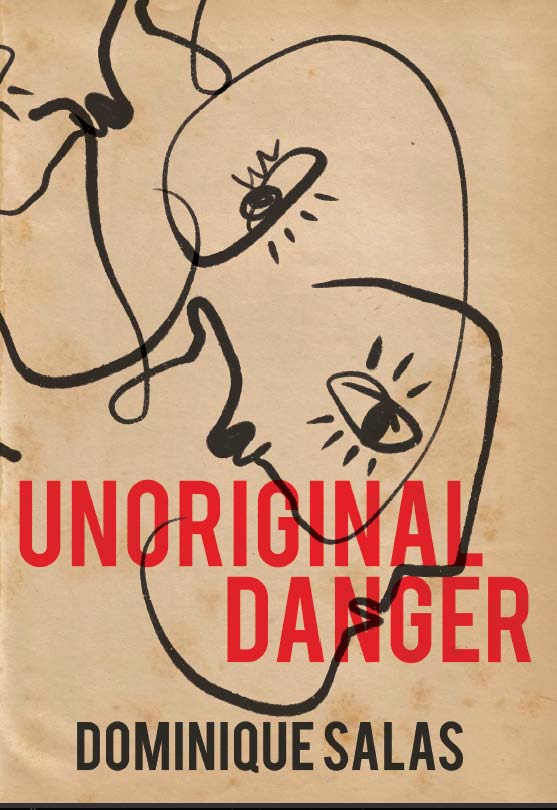
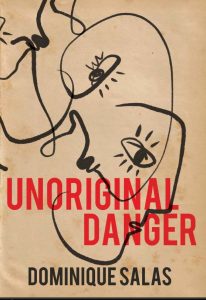 by Dominique Salas
by Dominique Salas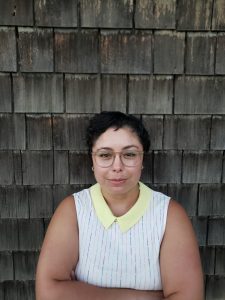 Dominique Salas is a PhD student at the University of Wisconsin–Madison. She was born and raised in El Paso, Texas.
Dominique Salas is a PhD student at the University of Wisconsin–Madison. She was born and raised in El Paso, Texas.